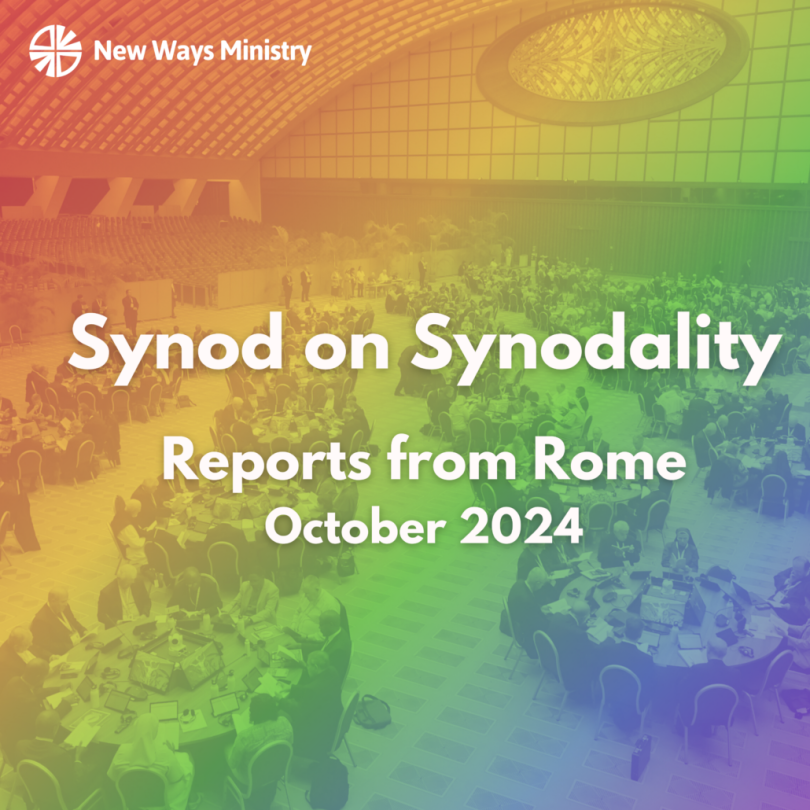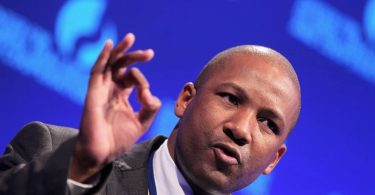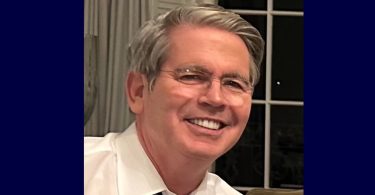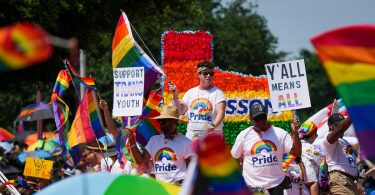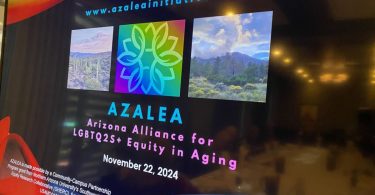ROME—In the era of Pope Francis, October has become perhaps the Catholic Church’s busiest month in the years when a Synod assembly is held–and there is always plenty of news. Today’s post is a sampling of insights, commentaries, and stories about the Synod on Synodality over the past ten days.
A Pastoral Convergence on Polygamy and LGBTQ+ Inclusion?
Christopher White, the National Catholic Reporter’s Vatican correspondent, detailed an exchange in the Synod assembly that is indicative of the tensions over issues of gender, sexuality, and relationships. White reported:
“An African bishop took to the microphone to make the case for greater pastoral accompaniment of polygamous couples. A day later, a priest took to the floor, giving an almost identical version of the prelate’s remarks, but replacing the word polygamy with LGBTQ.
“Several members confirmed these anecdotes but asked for anonymity. Delegates are officially barred from discussing specifics of the conversations that took place inside the Vatican’s synod hall.”
As many journalists, including Bondings 2.0’s Francis DeBernardo, have reported, all indications are that the Synod assembly’s participants are friendlier with and less skeptical of one another this year. White concluded of this development:
“Perhaps that’s why — at least according to two accounts — there was a greater sense of convergence when two delegates from two different cultures relied on the same logic to make the case for something the other might find objectionable. The African bishop argued that while polygamous relationships may not live up to the Gospel ideal, there is still a need to accompany people in such relationships and include them in the life of the church. Another synod delegate made the same argument on behalf of LGBTQ people.”
LGBTQ+ Advocate Links Synodality and U.S. Election
Yunuen Trujillo, author of LGBT Catholics: A Guide for Inclusive Ministry and member of New Ways Ministry’s Advisory Board, analyzed how synodality might impact how U.S. Catholics engage the upcoming elections in November. Trujillo, who is also a Bondings 2.0 contributor, notes in a column for the National Catholic Reporter that in both the church and in society, LGBTQ+ people have been “villainized for far too long.” She offers the following linkages:
“If we’ve been doing our homework, this 2024 election season should not mirror 2016. . .[Through these Synods,] the Holy Spirit is guiding the church in a more holistic direction, one in which the stories of women and LGBTQ+ people are heard, where we seek to understand the distinction between sexual orientation and gender identity, recognizing both as separate and distinct. This journey involves acknowledging and uplifting the God-given gifts of these two groups, in particular.
“How might this synodal posture transfer to the decision of how to vote?
“When it comes to elections, the role of the institutional church is not to replace our consciences by telling us how to vote. The church’s role is to form our conscience holistically, considering all aspects of the human person, listening to the stories and issues that affect our everyday lives. . .Then, each Catholic must vote their conscience; our well-formed conscience, informed by the lived experience of those we come in touch with on a daily basis, has primacy over everything else.”
Fr. James Martin: Pope Francis Makes “Great Advances” for LGBTQ+ Community
Fr. James Martin, SJ, a Synod assembly delegate, gave an interview to the National Catholic Reporter in which he addressed LGBTQ+ issues in this synodal process. James Grimaldi, NCR’s executive editor, asked Martin whether these issues would be discussed, even though they are not on the formal agenda. The priest replied:
“Certainly they are not on any agenda. But my sense is that as we discuss synodality, which includes listening carefully to the Holy Spirit active and alive in the People of God, we will naturally have to consider how those who feel that they are on the ‘peripheries’ are heard. In other words, I would imagine that they, and other groups who feel marginalized, will be very much on the minds of many delegates. But as of now, I’m not sure how the conversations will be structured, so who knows?”
Martin said that he believes Pope Francis has made “great advances” for LGBTQ+ people, while “balancing the desires of various groups in the church, various dioceses, various cultures and so on.” The full interview is available here.
Other Worthwhile Commentaries
While not directly related to LGBTQ+ issues, the following are some commentaries that given insight into dynamics at the Synod assembly.
Gender and sexuality issues are often dismissed by critics as “Western obsessions,” to quote one Australian bishop this month. Some think they are not relevant and even detract from Catholics’ real concerns. At America, Sebastian Gomes challenges that bishop, Anthony Randazzo of the Diocese of Broken Bay, and similar critics on the issue of women deacons. Gomes’ critique is readily applicable to LGBTQ+ people, too: “At this stage of the discernment, we might ponder if the categorization of women deacons as a ‘Western obsession’ has itself in some ways become a Western obsession.”
Zac Davis of America reported on some delegates’ frustrations with the wide-ranging, even unfocused range of topics that are raised in the Synod hall. Davis challenges the level of abstraction the process has remained at:
“Nature abhors a vacuum, and without a clear focus for conversation, people will naturally try to fill it with any number of issues. I believe we have run up against the limit of talking about synodality in an abstract way. . .
A synod delegate used a sports analogy to describe the issue in a different way: ‘It may seem as though instead of playing a game, we are only focusing on training camp. Instead of writing a diary of the mission, it seems that we are writing down a training manual. But we should rediscover the beauty of playing a football match, and not being at training camp perpetually.’”
Finally, an assembly participant, Fr. Thomas Scwhartz, wrote in a similar vein on his Synod blog—but also offered hope, too:
“It is clear to most of the participants that much needs to change in the church if it is to fulfil its mission and mission credibly in an ever faster changing world with ever new challenges. There was agreement on this fact. But there is a problem with the question of ‘how’. If you don’t have any answers, you sometimes try pious theological meditations and perhaps secretly hope that others will be more specific. And without giving too much away: Whenever this happens during the Free Interventions, there is always grateful applause.”
In a separate post, he stated:
“In any case, it is not only in this question that I notice the seriousness with which numerous synod participants try to empathise with the situation of their counterparts. This does not mean that they adopt his ideas and convictions. But they accept them. That makes me feel more conciliatory and a little hopeful for the weeks ahead.”
—Robert Shine (he/him), New Ways Ministry, October 18, 2024

